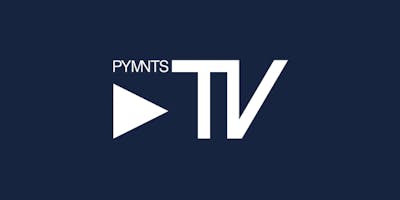.tech Podcast - Careers in Engineering
Sally Goble, Engineering Manager at accuRx, joins us to tell us all about growing engineering teams, how to support engineering career progression, as well as the importance of salary transparency.
Sally Goble is an Engineering Manager at accuRx. She has been with accuRx for about 6 months. Previously, she has worked at various start ups and scale ups including Deliveroo and The Guardian.
Growing engineering teams
When it comes to scaling engineering teams, it's important to get a balance between engineers at different levels. At small companies, it's important to have engineers who are able to execute quickly and deliver value. As the engineering team grows, it becomes more important to have a diverse team with different skills.
In a high growth company, you have to be very deliberate you don't fall into the common traps of hiring lots of junior engineers who don't have anyone to support them or hiring lots of engineers without any managers to guide them. Be very conscious to hire people that suit the scale of the company.
Senior engineers grow by mentoring less experienced engineers, so it's important to have a good mentorship scheme, either formal or informal. Teams should be made of a mix of experience, skills and seniority, so that everyone can have a good ecosystem to work in.
When it comes to team size, Sally recommends the classic "pizza size" team of 3-4 engineers to be efficient and lean. Organisationally, these smaller teams are organised into clans at accuRx of about 4-5 teams. These clans have ownership of a particular area of the business.
Career progression
Career paths should be available for everyone in the company. There should be a balance between hiring externally and promoting internally for positions of leadership in the company.
It's a challenge to come in at a very senior level, assimilate quickly and start making a lot of impact. It is also challenging for the company to assess whether they have made the impact during the very short probation periods, as delivering big important changes takes time. At Form3, we choose to promote internally only to give people the opportunity to grow and retain them for a longer time.
When it comes to career pathways, there is often the expectation to start out in engineering and then step into engineering management, as that was the only way to "do well". Now, senior individual contributors (ICs) are seen to be equal to management positions and have an equal seat at the table. It's great to have two separate career paths for engineering and management, with Tech Lead positions sitting somewhere in between.
At accuRx, engineering managers are hands off technical delivery and direction, giving autonomy and ownership to the engineering team. Tech Leads and Product Managers partner to deliver the features and difficult work. Engineering managers take care of engineering clans, ensuring that engineerings have career support, mentoring and guidance available to them. The relationship between engineering managers is long term, ensuring that engineers don't change managers once they change team.
One-to-ones are very important when it comes to checking in with the engineers. Sally finds that weekly one-to-ones are a vital part of keeping engineers happy and she always makes time for them.
Salary transparency
accuRx are proud to have publicly visible salary bands. It's great to be transparent, allowing engineers to see if they are being paid in line with their peers.
The career framework describes the skills and capabilities that your company values for each level of the engineering organisation. The engineering manager meets with the engineer and together review their performance against the career framework ideally 3-4 times a year. The engineering manager helps the engineer come up with a plan on addressing their areas of improvement, as well as finding opportunities to showcase their skills.
Progression frameworks should be taken in the spirit in which they're written, as opposed to becoming box ticking exercises. They should not be hard lines, what's important is that the engineer is in an upward career trajectory.
Written by
Adelina is a polyglot engineer and developer relations professional, with a decade of technical experience at multiple startups in London. She started her career as a Java backend engineer, converted later to Go, and then transitioned to a full-time developer relations role. She has published multiple online courses about Go on the LinkedIn Learning platform, helping thousands of developers up-skill with Go. She has a passion for public speaking, having presented on cloud architectures at major European conferences. Adelina holds an MSc. Mathematical Modelling and Computing degree.
Further resources
Blogs · 10 min
Dangling Danger: Route53's Flawed Dangling NS Record Protection
A subdomain takeover is a class of attack in which an adversary is able to serve unauthorized content from victim's domain name. It can be used for phishing, supply chain compromise, and other forms of attacks which rely on deception. You might've heard about CNAME based or NS based subdomain takeovers.
October 27, 2023
Blogs · 4 min
Applying the Five Ws to Incident Management
In this blogpost, David introduces us to the five W's of information gathering - Who? What? When? Where? Why? Answering the five Ws helps Incident Managers get a deeper understanding of the cause and impact of incidents, not just their remedy, leading to more robust solutions. Fixing the cause of an outage is only just the beginning and the five Ws pave the way for team collaboration during investigations.
July 26, 2023
Blogs · 4 min
.tech Podcast - All about conference speaking
Patrycja, Artur and Marcin are engineers at Form3 and some of our most accomplished speakers. They join us to discuss their motivations for taking up the challenge of becoming conference speakers, tell us how to find events to speak at and share their best advice for preparing engaging talks. They offer advice for new and experienced speakers alike.
July 19, 2023












